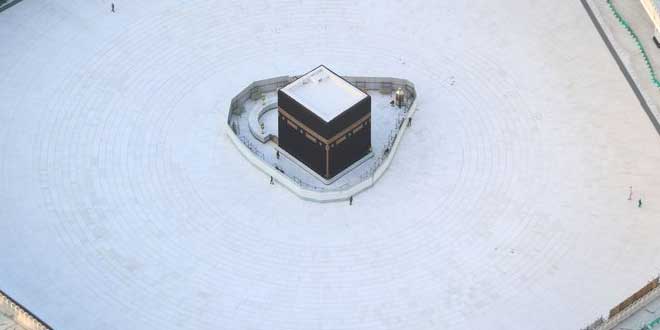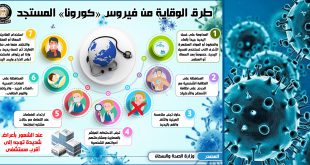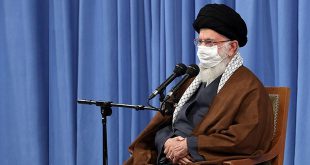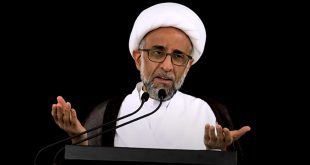الاجتهاد: أثار تقرير نشرته صحيفة نيوزويك الأمريكية، ألقت فيه الضوء على تعاليم النبي محمد(صلى الله عليه وآله وسلم) وأنه “أول” من اقترح الحجر الصحي والنظافة الشخصية في حالات انتشار الوباء، تفاعلا واسعا بين النشطاء على مواقع التواصل الاجتماعي، بتوقيت يأتي بالتزامن مع الدعوات المتصاعدة للبقاء في المنازل والحجر الصحي لمواجهة فيروس كورونا الجديد، أو ما بات يُعرف باسم “كوفيد-19”.
التقرير جاء بعنوان: “هل يمكن لقوة الصلاة وحدها وقف جائحة؟ حتى النبي محمد(ص) كان له رأي آخر”، حيث قال الطبيب كريغ كونسيدين، كاتب التقرير المنشور في الـ17 من مارس/ اذار الجاري: “خبراء المناعة مثل الطبيب انتوني فوتشي والمراسلون الطبيون مثل سانجي غوبتا يقولون إن نظافة شخصية جيدة وحجر صحي هي أفضل الوسائل لتطويق كوفيد-19”.
وتابع قائلا: “هل تعلمون من أيضا اقترح النظافة الشخصية والحجر الصحي خلال انتشار وباء؟ محمد، نبي الإسلام قبل 1300 عام.. ففي الوقت الذي لم يكن (النبي محمد) وبأي شكل من الاشكال خبيرا ’تقليديا‘ بشؤون الأوبئة المميتة، محمد قدم نصائح لمنع ومواجهة تطورات مثل كوفيد-19”.
وأضاف التقرير: “محمد قال: إذا ما سمعتم بانتشار الطاعون بأرض ما لا تدخلوها، أما إذا انتشر الطاعون في مكان خلال تواجدك فيه فلا تغادر هذا المكان.. وقال أيضا: المصابون بأمراض معدية يجب ابقاءهم بعيدا عن الآخرين الأصحاء”.
والقى التقرير الضوء على أن “النبي محمد أيضا شجع بقوة البشر الالتزام بالنظافة الشخصية التي ستبقي الناس في مأمن من العدوى.. أنظروا للأحاديث هذه: النظافة جزء من الإيمان.. اغسل يديك بعد استيقاظك من النوم فلا تعلم اين تحركت يداك خلال نومك.. بركة الطعام تكمن في غسل اليدين قبل وبعد الأكل..”
واستطرد كاتب التقرير قائلا: “لعل أهم شيء هو أنه (النبي محمد) علم متى يوازن الدين والأسباب، خلال الأسابيع الماضية ذهب البعض بعيدا لاقتراح أن الصلاة ستكون أفضل لإبقائك آمنا من فيروس كورونا أكثر من الالتزام بالمبادئ الأساسية والتقيد بالتباعد الاجتماعي والحجر الصحي.. ماذا كان النبي محمد ليقول عن فكرة أن الصلاة أهم أو الوسيلة الوحيدة للعلاج؟”
وأثار هذا التقرير تفاعلا واسعا بين نشطاء مواقع التواصل الاجتماعي.
المصدر: cnn بالعربية
قراءة المقال بالانكليزية
CAN THE POWER OF PRAYER ALONE STOP A PANDEMIC LIKE THE CORONAVIRUS? EVEN THE PROPHET MUHAMMAD THOUGHT OTHERWISE | OPINION
PROPHET MUHAMMAD
The COVID-19 pandemic is forcing governments and news sources to provide the most accurate and helpful advice to the world’s population, as the disease is indeed global in reach. Health care professionals are in high demand, and so too are scientists who study the transmission and effect of pandemics.
Experts like immunologist Dr. Anthony Fauci and medical reporter Dr. Sanjay Gupta are saying that good hygiene and quarantining, or the practice of isolating from others in the hope of preventing the spread of contagious diseases, are the most effective tools to contain COVID-19.
Do you know who else suggested good hygiene and quarantining during a pandemic?
Muhammad, the prophet of Islam, over 1,300 years ago.
While he is by no means a “traditional” expert on matters of deadly diseases, Muhammad nonetheless had sound advice to prevent and combat a development like COVID-19.
Muhammad said: “If you hear of an outbreak of plague in a land, do not enter it; but if the plague outbreaks out in a place while you are in it, do not leave that place.”
He also said: “Those with contagious diseases should be kept away from those who are healthy.”
Muhammad also strongly encouraged human beings to adhere to hygienic practices that would keep people safe from infection. Consider the following hadiths, or sayings of Prophet Muhammad:
“Cleanliness is part of faith.”
“Wash your hands after you wake up; you do not know where your hands have moved while you sleep.”
“The blessings of food lie in washing hands before and after eating.”
And what if someone does fall ill? What kind of advice would Muhammad provide to his fellow human beings who are suffering from pain?
He would encourage people to always seek medical treatment and medication: “Make use of medical treatment,” he said, “for God has not made a disease without appointing a remedy for it, with the exception of one disease—old age.”
Perhaps most importantly, he knew when to balance faith with reason. In recent weeks, some have gone so far as to suggest that prayer would be better at keeping you from the coronavirus than adhering to basic rules of social distancing and quarantine. How would Prophet Muhammad respond to the idea of prayer as the chief—or only—form of medicine?
Consider the following story, related to us by ninth-century Persian scholar Al-Tirmidhi: One day, Prophet Muhammad noticed a Bedouin man leaving his camel without tying it. He asked the Bedouin, “Why don’t you tie down your camel?” The Bedouin answered, “I put my trust in God.” The Prophet then said, “Tie your camel first, then put your trust in God.”
Muhammad encouraged people to seek guidance in their religion, but he hoped they take basic precautionary measures for the stability, safety and well-being of all.
In other words, he hoped people would use their common sense.
Dr. Craig Considine is a scholar, professor, global speaker, and media contributor based at the Department of Sociology at Rice University. He is the author of The Humanity of Muhammad: A Christian View (Blue Dome Press, 2020), and Islam in America: Exploring the Issues (ABC-CLIO 2019), among others.
The views expressed in this article are the author’s own
 الاجتهاد موقع فقهي
الاجتهاد موقع فقهي




